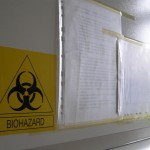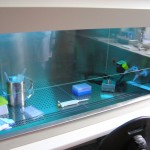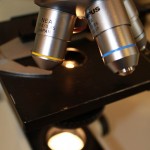Study curriculum | Accreditation [PDF]
PROFESSIONAL STUDY OF ENVIRONMENTAL HEALTH ENGINEERING
Rationale
The study of Environmental Health Engineering deals with the solutions of public health problems. The study program has been designed so as to include all segments of eco-system and factors influencing human health.
The reasons and justification to start such a study program are based on the laws of the Republic of Croatia: The Act on Sanitary Inspection; The Act on Protection of Population from Communicable Diseases; The Act on Toxic Substances; The Act on Foodstuff.
Upon completion of the professional study, the environmental health engineering students are employed in services as defined by the aforementioned legal acts; for example: in inspection services, in hygienic-epidemiologic and microbiological teams, in laboratories for chemical and microbiological control of foodstuff and objects for common use, in laboratories for chemical and microbiological testing of all water types, in laboratories for the testing of wastes, soil, air and eco-toxicology, where highly sophisticated equipment is used, and in units for sanitary technical facilities, in sterilisation units, rat and insect control units and activities of disinfection.
With regard to the student competences, an environmental health engineer also participates in the following public services: state administration – inspection services; public health sector – institutes of public health, hospitals, tourism; private sector – private firms engaged in disinfection and rat and insect control, catering and other food serving objects and firms.
In the Republic of Croatia a similar study program exists in Rijeka, at Rijeka University School of Medicine and in Slovenia, at the Faculty of Health Sciences, University of Ljubljana. These university study programs, and knowledge, competences and skills gained upon completion of study curricula, together with employment opportunities are, to a large degree, comparable with professional study program at University of Applied Health Studies.
Current Experiences with Similar Programs
The professional study program in environmental health engineering was established in 1966 at Zagreb Advanced School of Nursing and Health Technicians, the today’s University of Applied Health Studies. Since 1966 till 1988 the study lasted two years, and in 1999 first students enroled into a three-year study program. From 1999 to 2003, 931 Environmental Health Engineers graduated from Advanced School of Nursing and Health Technicians. The study programs have gradually been developing in accordance with the needs of the profession, hence the specialist study program is designed as a continuation of the existing professional study programs and in accordance with new, modern and Europe oriented study program.
General information
Name of the study Professional study of Environmental Health Engineering Teaching institution University of Applied Health Studies Duration Three (3) academic years (6 semesters) Admission conditions Fully completed four-year secondary school program and entrance exam. Professional Title Baccalaureate in Environmental Health Engineering (professional B.A.).
Job skills and competences
With regard to the activities an environmental health engineer can perform he can be employed in : 1. state administration – sanitary inspection – environmantal inspection 2. public health sector a) institutes of public health: – epidemiological services (hygienic-epidemiological departments, health education centres, disinfection and rat and insect control units) – microbiological services (laboratories for microbiological, virological and parasitological testing) – environmental health services (laboratory for chemical microbiological control of foodstuff and objects for common use, laboratories for chemical and microbiological testing of all water types, laboratories for the testing of wastes, soil, air and eco-toxicology and units for sanitation technology). – social medicine units b) hospitals – sterilisation units – services for sanitary inspection of areas for preparation and preservation of foodstuff c) tourism – hotels (inspection of pool water, sea, storage control, preparation of foodstuff, drinking water, air-conditioning systems, waste disposal) 3.private sector – private disinfection and rat and insect control companies – catering companies – private tourist facilities









